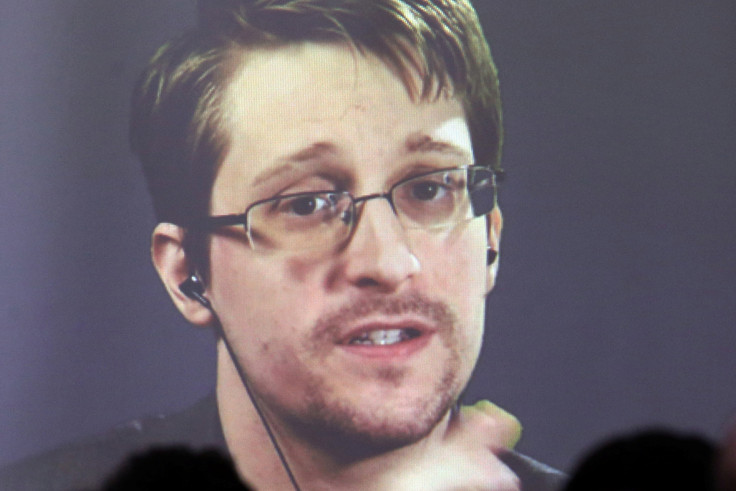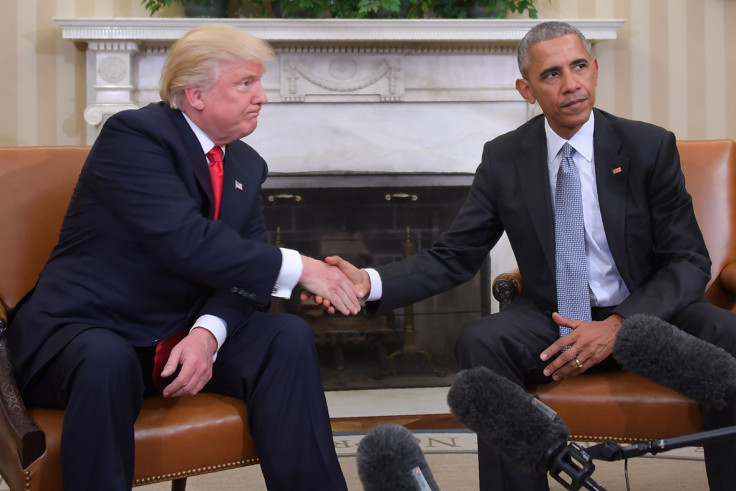Trump's surveillance state: Edward Snowden warns about expansion of spying powers
Donald Trump will inherit the most powerful surveillance programme in the world.

With less than 70 days until president-elect Donald Trump becomes the commander-in-chief of the US surveillance state, former NSA analyst Edward Snowden has spoken out about concerns that America may descend from open government to authoritarian rule.
Snowden, who famously leaked a trove of classified NSA material outlining the vast surveillance apparatus built by global intelligence agencies, was speaking via teleconference from his residence in Moscow to an event hosted by Buenos Aires University's law school.
"We are starting to substitute open government for sheer authoritarianism, a government based not upon the principle of informed consent granted by people who understand its activities but rather a trust in personalities [and] a trust in the hope that they will do the right thing," he said.
Snowden spoke about fears that progressive changes to US surveillance law – only enacted after he made his disclosures to the press back in 2013 – will be altered by incoming officials "who have a very different set of values and can govern in the dark."
"If government does actually win our trust, because they go for some years and they do operate in a way that we should support, what happens when it changes?" he continued, adding: "This is kind of the challenge that we're facing today in the United States with the result of the last election."
Donald Trump's public position (and general knowledge) on surveillance and bulk data collection – like that conducted by US agencies like the NSA and the UK's GCHQ – has been murky at best.
In a previous debate with Democratic Party candidate Hillary Clinton during the run-up to the November presidential election, President-elect Trump was ridiculed for his comments on cybersecurity – what he called "the cyber" – in light of the hack at the DNC.
"Look at the mess that we're in. As far as the cyber [...] we should be better than anybody else," he said at the time, adding: "the security aspect of cyber is very, very tough. And maybe it's hardly doable. But I will say, we are not doing the job we should be doing."
After beating Clinton in the election, fears quickly mounted about how the new president would rule over the most sophisticated spy programme in the world.

Previously, Trump indicated he would openly place mosques and the Black Lives Matter movement under enhanced scrutiny; he has publicly dared the Russian state to hack into computers used by rival politicians to dig up damaging information.
However, some within the US intelligence community say that even under a Trump administration not much would change. Staffers with agencies like the NSA are not bound by presidential order but the US constitution, Chris Inglis, former deputy director of the NSA previously told IBTimes UK.
"Wouldn't be much different," Inglis said bluntly when asked how Trump could wield the mass spying powers. "Across NSA's history it has largely been agnostic, sometimes ignorant, of what political power happened to be in at that moment.
"The fundamental charge at the NSA – independent of any member of the federal bureaucracy is to not work for the president or defend the president's interests but to defend the constitution. And we make a big point of that.
"So under a Donald Trump, even if he were to attempt to abuse or misuse the NSA the right answer has to be, will be, should be – no. You have the obligation to say no. That's what it means for every US member of the military, every member of the federal bureaucracy, to take an oath to the constitution."
© Copyright IBTimes 2025. All rights reserved.






















